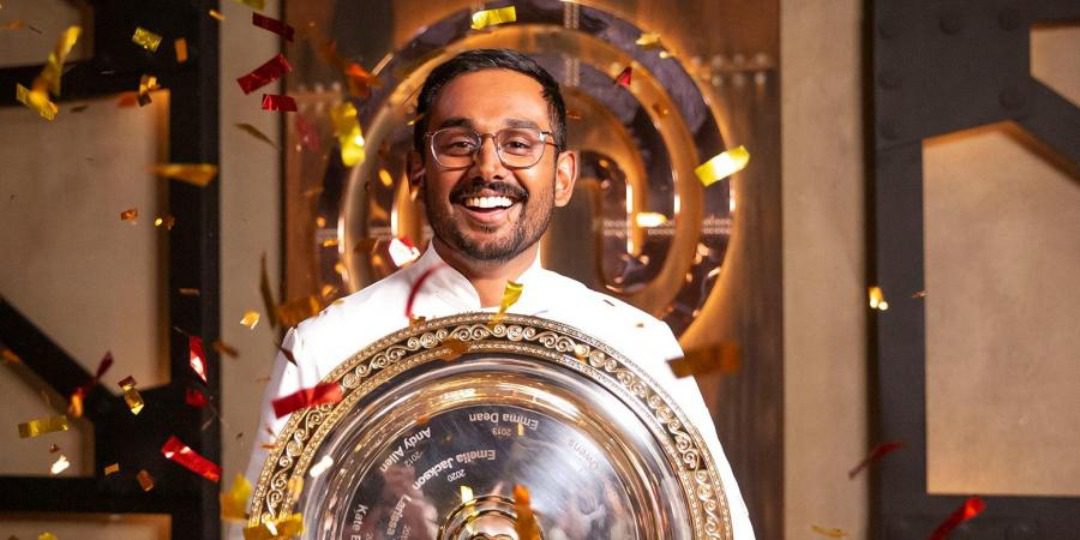(July 14, 2021; 5.35 pm) It was a room full of anticipation and anxiety at the MasterChef Australia with three finalists, their families, and the judges waiting with bated breath to crown the season 13 winner. The moment of truth arrived when Fijian-Indian Justin Narayan beat his competitors Kishwer Chowdhury and Pete Campbell with a perfect score and picked up the winner’s trophy.
The 27-year-old’s incredible win made him the second person of Indian descent to clinch the title after Sashi Cheliah in 2018.
View this post on Instagram
Celebrating his win, an elated Narayan said, “I just won MasterChef season 13. What the heck! It’s a surreal feeling. It’s going to take a while to sink in.”
View this post on Instagram
But not many know that Narayan was almost on the verge of leaving the competition after his dad was admitted to the hospital.
“He got sick during the filming and ended up in ICU for a few days, and it was touch and go if I would continue on with the comp or not, but he ended up getting better and got out of the hospital,” Narayan told TV Week.
View this post on Instagram
A pastor by profession, Narayan hails from Perth in Western Australia. Born to Fiji-Indian parents, Narayan started cooking at the age of 13, drawing inspiration from both cultures. “I like being able to be versatile and I like cooking different cuisines,” he said in a video charing his journey at MasterChef Australia.
He calls his mother his biggest inspiration and the best cook he knows.
Being the eldest among the three siblings, he has always been close to his grandparents and watched cooking shows with them.
In 2017, he travelled to India and instantly fell in love with its culture, history, people, and food.
Justin, who was working as a youth pastor to create a fun and safe community for teenagers, quit his job to pursue his culinary dreams and participated in MasterChef Australia. It was his fiancee Esther (now his wife) who pushed him to follow his dream of becoming a chef.
After winning big at MasterChef Australia, Narayan has plans of opening his own restaurant one day. “I would love to create some food content, which I am working on at the moment and hopefully get some experience in the kitchen, and work towards opening my own place, and that would be really cool,” he added.
Justin Narayan is a man on a mission as he plans to use some profits from his future restaurant to helping feed children living in the slums in India.
Indians were well-represented in this year’s edition of MasterChef Australia with contestants like Depinder Chhibber who became a favorite with the judges. The Delhi-born Australian put delectable South Asian cuisines on the table, fully representing her Indian heritage.
Editor’s Take:
Food has the power to transport you to a place or a country. The taste, the texture, the spices, the smell are enough to take you on a culinary journey. And this is exactly what Justin Narayan did when he cooked up a storm at MasterChef Australia season 13. The 27-year-old pastor with Fijian and Indian roots put delicious food on the platter week after week. He wowed the judges with his versatility but it was the Indian influences that worked wonders for him on the show. From Indian chicken tacos to pickle salad to Indian chicken curry, he put Indian cuisine on the global map.
RELATED READ: Celebrity chef Gaggan Anand gave Indian cuisine a makeover with his dramatic style. Here’s how
